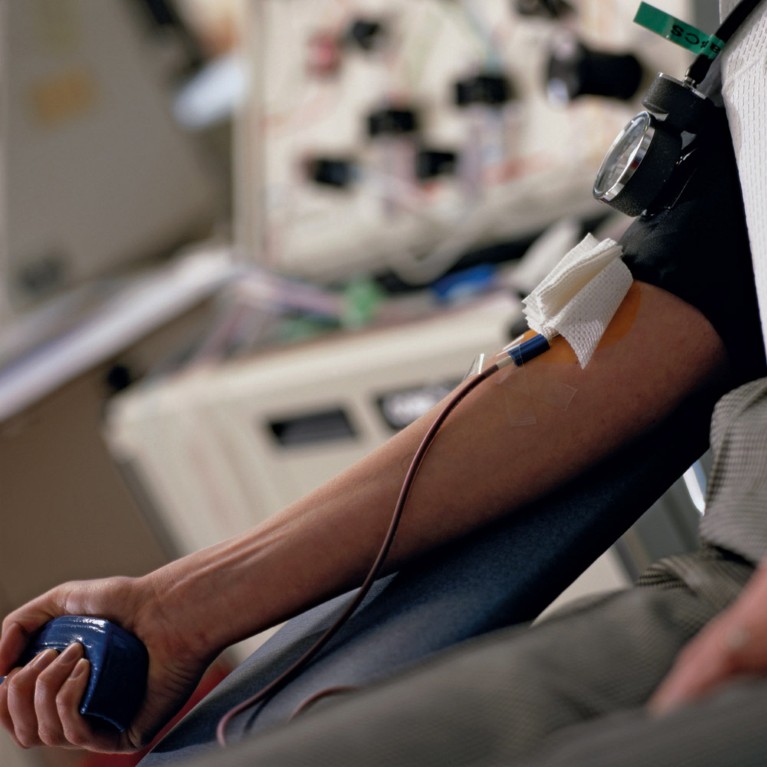
Donating blood lowers the body’s iron stores, with potential health benefits.© PHOTODISC / GETTY IMAGES
Heart attack, stroke and type II diabetes have all been shown to be less common in individuals that regularly donate blood. But, according to a new study led by researchers at King Abdullah International Medical Research Center (KAIMRC), just a single blood donation can temporarily improve a person’s insulin production and glucose tolerance.
KAIMRC pathologist Anwar Borai led an international team that tested the levels of several key diabetes-related biomarkers in the blood of 42 healthy male donors.
Biomarkers, including those related to glycaemic status (the level of glucose in the donor’s blood), insulin production and iron levels, were tested before donation and then one day, one week, three weeks and three months after giving blood.The results show that regular, repeated blood donation is not required to see a beneficial effect on the donor’s glucose tolerance. “The glycaemic status of the donor can be mproved even after a single blood donation,” Borai says.
The improvement was particularly evident three weeks after donation. By three months, most of the tested biomarkers returned to their pre-donation levels. Borai says improvements could continue if donors made healthy lifestyle changes after donation.
The team suspects that the improvement in glucose tolerance is linked to the levels of iron and other metals in the bloodstream. “It is well known that low iron stores may contribute to enhanced insulin sensitivity,” Borai says. Iron-containing compounds in the blood can produce damaging molecules, known as reactive oxygen species, which have been shown to interfere with insulin signalling, lowering a person’s tolerance of glucose. As Borai’s results confirm, giving blood removes some iron from the body, perhaps helping restore insulin signalling.
The team next plans to repeat the study with people who have impaired glucose tolerance and full-blown type II diabetes. “Blood donation could be an alternative way to improve glycaemic status, particularly in people with impaired glucose tolerance who are on a diet and have not started their treatment yet,” says Borai.
The technique may also be used to assess how blood donation affects other areas of health, including levels of white blood cells called lymphocytes, which form part of the immune system. “I am preparing the second part of the study which is about changes in lymphocyte subsets and general immunity after whole blood donation,” Borai says.


